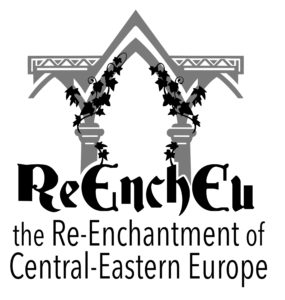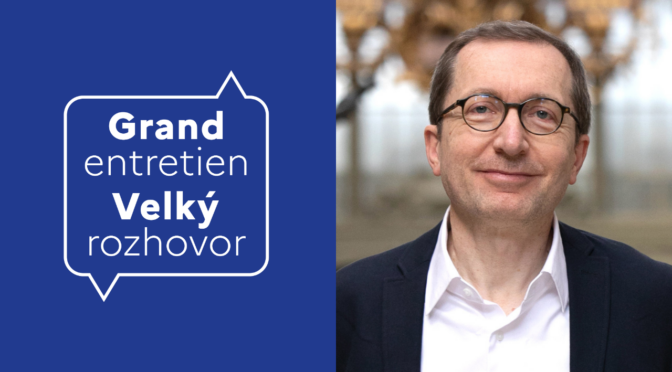
Žít v knihovně o pěti dimenzích
Kdy: 11. června 2025, 18 h
Kde: Francouzský institut v Praze, Štěpánská 35, Praha 1
Jazyk: francouzština se simultánním tlumočením do češtiny
Odkud pochází nevraživost vůči literatuře a jaké jsou kořeny jejího rostoucího znehodnocování? Jak můžeme obohatit naše čtení tím, že na texty nahlédneme z decentralizovaného pohledu? Do jaké míry může perspektiva přicházející z dálky vrhnout nové světlo na naše porozumění řeckým tragédiím? A jakými silnými argumenty ukončil papež František dlouhou historii útoků na literární texty?
Událost vzniká v rámci cyklu “Velké rozhovory s…”, které organizuje CEFRES a partneři CEFRES Platformy ve spolupráci s Francouzským institutem v Praze. Pokračování textu Rozhovor | Svět Williama Marxe →
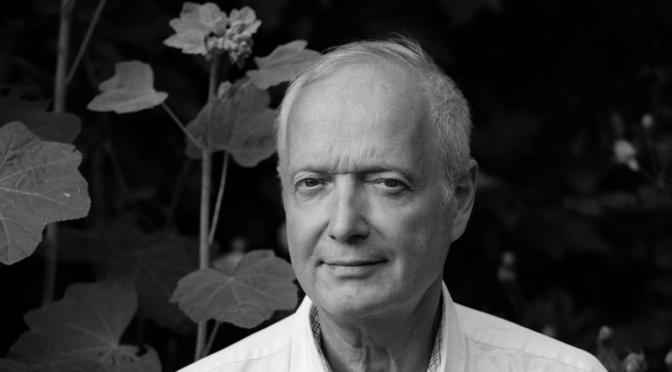
Rozhovor se Xavierem Galmichem u příležitosti vydání českého překladu jeho knih Metafyzický kurník (Revolver Revue, 2023) and Znaky a přízraky: Výbor ze statí o české a středoevropské literatuře (Karolinum, 2023).
Kdy: 6. prosince od 18 hodin
Kde: Francouzský institut v Praze, Štěpánská 35, Praha 1, Nové Město
Jazyk: francouzština a čeština (simultánní tlumočení zajištěno)
Partneři: CEFRES, Francouzský institut v Praze, Revolver Revue, Univerzita Karlova a Nakladatelství Karolinum
Diskuse s Xavierem Galmichem, profesorem české a středoevropské literatury na Sorbonne Université, bude moderovat Mateusz Chmurski, ředitel CEFRESu, který na téže univerzitě vyučuje středopevropskou literaturu.
Pokračování textu Rozhovor se Xavierem Galmichem →
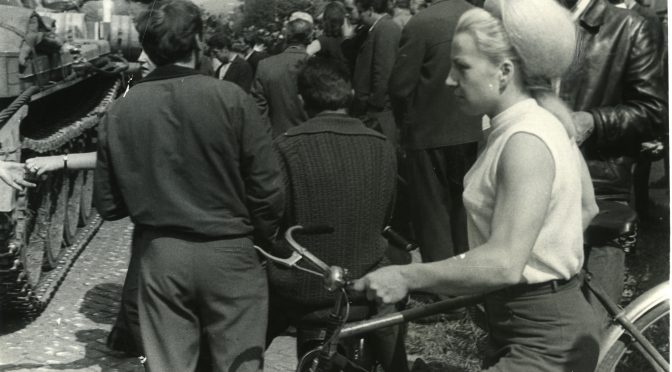
Místo: Evropský dům, Jungmannova 24, 110 00 Praha 1
Čas: 17h-20h30
Organizátoři: CEFRES, IFP, Centrum Marca Blocha, Francouzský institut v Berlíně a Univerzita Paris Nanterre, s podporou Francouzského institutu v Paříži
Jazyk: čeština, francouzština (simultánně tlumočeno)
Setkání k připomenutí událostí roku 1968 v Berlíně, v Nanterre a v Praze za přítomnosti režisérky Olgy Sommerové a spisovatelky a novinářky Edy Kriseové.
Pokračování textu Rok 1968: má ještě význam? Pohledy z Paříže, Prahy a Berlína →
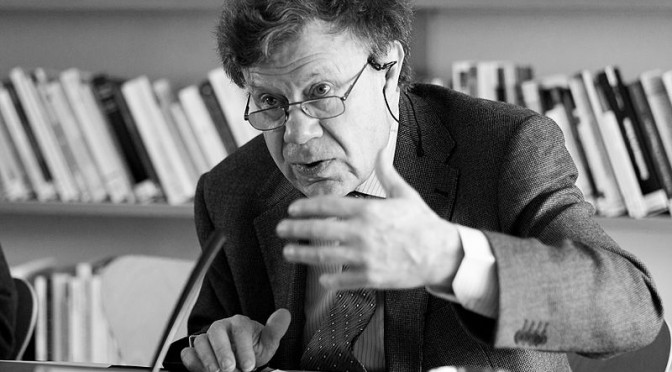
Přednáška 18. května 2016
Místo: Francouzský institut v Praze, Štěpánská 35, Praha 1, kinosál
Vytváření digitálních sbírek, debaty o proměnách praxe čtení a psaní, zmnožení obrazovek a rozvoj trhu s elektronickými knihami – toto vše poukazuje na hluboké změny probíhající v písemné kultuře. Přesto jsou právní, estetické a kulturní aspekty v současných diskusích překryty nepřestajným tokem novinek a ostrostí probíhajících sporů.
Roger Chartier nenabízí prorocké vize, nýbrž ukazuje, že dějiny písemné kultury, zkoumané ve velmi dlouhém časovém měřítku, nám mohou pomoci dnešní změny lépe pochopit.
Historická perspektiva totiž umožňuje ujímat se základního paradoxu, tedy přetrvávání díla a plurality textů nebo stavů, v nichž je dílo zachyceno, který se týká i doby vstupu písemné kultury do digitálního světa.
Viz prezentace Rogera Chartiera:
na stránkách CEFRES
na stránkách College de France
a pozvánku na stránkách Francouzského institutu v Praze
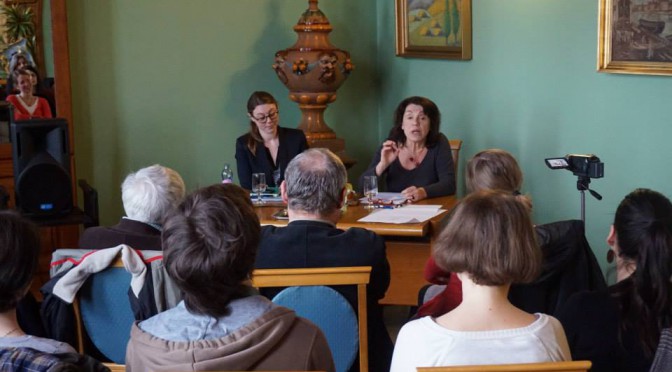
Anne-Marie LOSONCZY (profesorka, Ecole pratique des hautes études) bude 2. března 2015 v Pécsi, v rámci Regionální komise Maďarské akademie věd, mít přednášku nazvanou:
“Rituály cestování. Nové teorie, nové terény.”
Přednáška je organizovaná Pécskou univerzitou a Regionální komisí Maďarské akademie věd za spolupráce s Fondation de la Maison des Sciences de l’Homme v Paříži a CEFRESem v Praze.
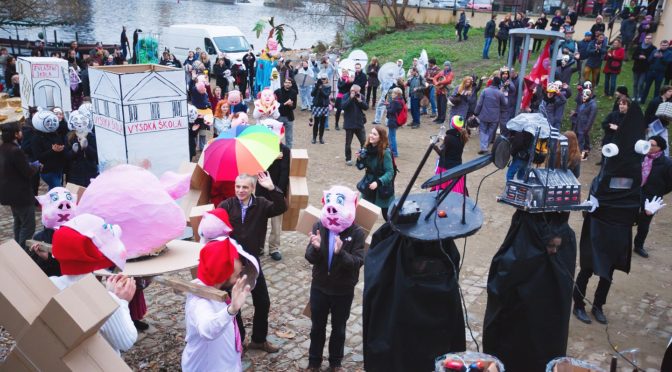
Workshop : Ritualization of transgressions and normativities in the European Mediterranean public space
Kdy: Pondělí 28. února 2022, 10:30–17:00
Kde: v CEFRESu a online (https://us02web.zoom.us/j/87924365313)
Jazyky: French and English
Organizují: Michèle Baussant (CNRS, CEFRES), Yoann Morvan (CNRS, MESPOLHIS) and Alessandro Testa (FSV UK, přídružený CEFRESu)
This workshop focuses on the ritualization of transgressions and ‘normativities’ in Euro-Mediterranean public spaces. It aims to adopt an anthropological approach to contemporary European religious phenomena and rituals, both as factors of cultural, symbolic, and spatial sharing and division in Euro-Mediterranean spaces. In particular, the discussions will question the processes of secularism and secularization, of “de-secularization” or “re-enchantment,” or of political and/or social maintaining of the religious. The focus will also encompass the logics of encounters, hybridizations, tensions, and transgressions between different religious actors and practices, both in the case of majority groups and those in minorities, within public spaces that are often pluralistic and pluricultural, in Central, Eastern, and Southern Europe.
Program
10:30–12:00 – Roundtable (in French)
Ritualization of transgressions and forms of normativities in Euro-Mediterranean public spaces: anthropological approaches
With:
- Dionigi Albera (CNRS, IDEMEC)
- Alessandro Testa (Charles University)
- Yoann Morvan (CNRS, MESPOLHIS)
- Ronan Hervouet (CEFRES / University of Bordeaux)
- Viola Teisenhoffer (Charles University / Eötvös Loránd University, Budapest)
Moderators:
- Michèle Baussant (CNRS, CEFRES)
- Jérôme Heurtaux (CEFRES / Paris Dauphine University)
14:00–15:30 – (in English)
Ritualization of transgressions and forms of normativities in public spaces in Central Europe
With:
- Martin Pehal (Charles University)
- Viola Teisenhoffer (Charles University / Eötvös Loránd University)
- Agata Ładykowska (Charles University / Polish Academy of Sciences)
Discussant:
- Dionigi Albera (CNRS, IDEMEC)
16:00–17:00 – (in English)
Presentation of Alessandro Testa’s book,
Rituality and Social (Dis)Order: The Historical Anthropology of Popular Carnival in Europe (Routledge, 2020)
Discussants:
- Alessandro Testa (Charles University)
- Dionigi Albera (CNRS, IDEMEC)
- Martin Pehal (Charles University)
Ilustrace: Martin Pehal

